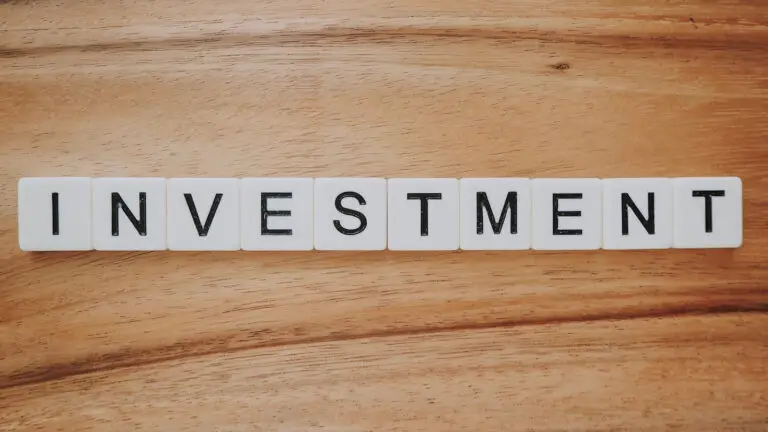
Investing 101: A Guide To Get Started
Most of us don’t save enough to be able to achieve our financial goals, but by following some of the basic investment principles you can get your savings plan on track. That’s where investing comes in.
There’s No Shortcut to Wealth
The first thing to remember is that there is no quick way to riches.
The most stable and profitable investments take time to grow, and if someone offers you incredible returns that sound too good to be true, then it probably is. Rather stick with companies and funds that have solid track records and a reputation for trustworthiness. You don’t need fancy terms — you need consistency, safety, and time.
Time Is Your Secret Weapon
You’ve probably heard this before, but it’s worth repeating: time in the market beats timing the market.
The longer you invest, the more risk you can take, and the more compound interest could work in your favour.
Keep investing regularly, even if the market is going through a slump. The habit of saving is an important one, and if you continue the habit through tough economical times, you will reap the benefits when the market recovers
Even if you start small today — like R500 a month — that’s better than waiting for “the perfect time,” as there is no perfect time. That’s why it’s important to start as soon as possible.
Stay Consistent — Even When the Market Wobbles
Here’s something most people get wrong: they panic when markets drop. But dips aren’t disasters — they’re discounts.
When prices fall, it’s like buying assets/stock “on sale,” like Warren Buffett has done many times. Keep investing and stay in the market, even when things look rough. History shows that markets recover — and those who stayed consistent often come out stronger.
It’s not about timing, it’s about the habit.
Don’t Put All Your Eggs in One Basket
Listen to the old saying of “Don’t keep all your eggs in one basket”. Spreading your investment risk over a number of products can help you through the tougher financial times, as one investment might gain when another is going through a slump.
To do this you have to diversify your investments. That means spreading your investments across:
Different types of assets (like stocks, bonds, and property)
Different regions (local and international)
Different time horizons (short-, medium-, and long-term goals)
That’s one way of protecting your money — and gives you more peace of mind.
Use the Services Of A Professional
Even the most independent investor needs the services of a professional and their intimate knowledge of the investment landscape sometimes.
A qualified financial adviser can help you:
Choose the right mix of investments for your goals.
Review your plan regularly.
Keep you calm when the market (or your emotions) go wild.
And no, advisers aren’t “just for the wealthy.” The right advisor should meet you where you are at, at that moment — whether you’re saving R500 or R50,000.
Think of them as your financial GPS. You are still the driver, but they help you circumvent the big holes in the road.
Your Financial Journey Is Unique
It is important to remember that your financial needs are unique. Just because a certain investment works for a friend, doesn’t mean it will be ideal for you.
FAQs About Saving
I DON’T HAVE A LOT OF MONEY TO SAVE, IS IT STILL WORTH INVESTING?
Yes, no matter how much or how little money you have, every dollar/rand counts. Even if you only save a small amount, you can still benefit from compound interest (interest on interest) that helps your investment grow over time, and has the potential to become a substantial amount. Regular saving is key, and getting into the habit of putting a little money away every month can benefit you in the long run.
AM I TOO OLD TO START SAVING? HAVE I MISSED THE BOAT?
You are never too old to start saving. While it’s best to start saving from as young as possible, you can still benefit from putting money away, no matter how old you are.
SHOULD I PAY OFF MY DEBT BEFORE I CAN START SAVING?
Having no debt whatsoever is the ideal but it is not always possible to avoid debt. While it’s important to make paying off your debt as soon as you can to save on the unnecessary interest you pay on it, it’s also important to get into the habit of saving. Prioritise paying off your debt, but set aside a small amount each month to save.
WHAT’S THE DIFFERENCE BETWEEN FIXED AND LINKED INTEREST RATES?
Linked interest rates are linked to the prime interest rate that’s determined by the Reserve Bank. If you have a loan with a linked interest rate it means the interest you pay will go up or down as the prime rate fluctuates. People usually choose a linked option when the prime rate is relatively high and they expect it to go down. However, it’s not guaranteed and the rate might go up.
A fixed interest rate means the interest you pay is pinned at a certain rate at the beginning of your loan and will stay the same throughout the period of your loan, regardless of whether the prime rate rises or falls. People often opt for a fixed rate when interest rates are low and it’s expected to rise. As with linked rates, there’s a chance that interest rates may actually fall lower than your pinned rate.
I DON’T EARN A LOT OF MONEY. ARE FINANCIAL ADVISERS ONLY FOR THE WEALTHY?
Everyone can benefit from the services of a professional financial adviser, no matter what your financial situation. Financial advisers will help you determine the best way to reach your financial goals by helping you choose the most suitable products for your needs. They will also monitor your investments and/or savings regularly to ensure you’re on the right track.
Investing isn’t about luck, timing, or fancy predictions as any successful investor will tell you. It’s about consistency, patience, and small, smart decisions — made over time.
Start small, stay consistent and let compound interest do the heavy lifting.
What’s one small investing step you can take this week? Open an account? Automate your savings?
Tell me in the comments — or share this with someone who keeps saying, “I’ll start investing one day.”

